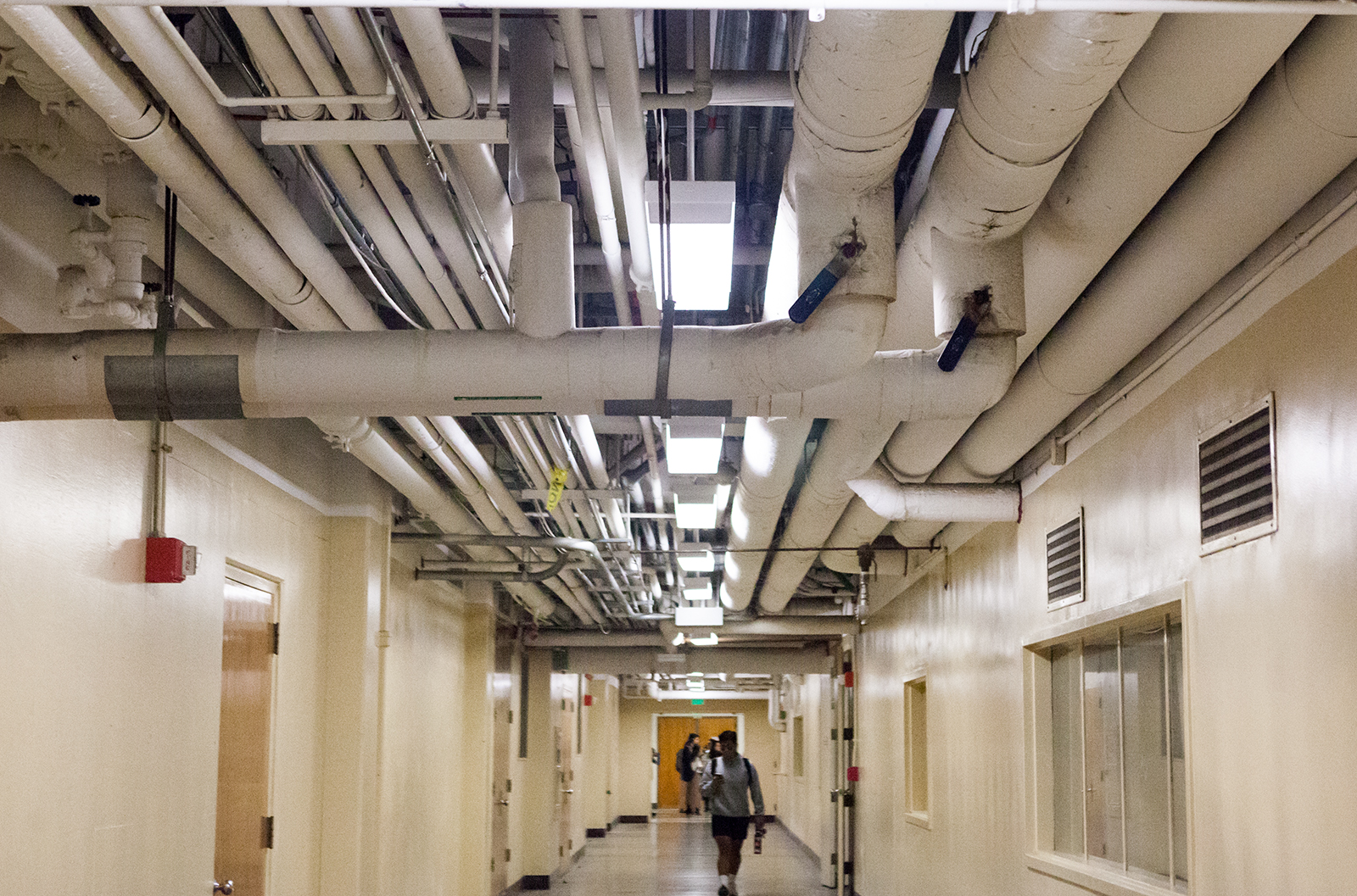Luskin Center for Innovation receives $3M grant to assess California’s water needs

A team at the Luskin Center for Innovation has received a $3 million grant from the California State Water Resources Board to conduct a statewide assessment of water systems need. The team will analyze data provided by the board to identify ways to improve water treatment and transportation. (Mia Kayser/Daily Bruin staff)

By Bernard Mendez
Oct. 16, 2019 12:28 a.m.
California became the first state to recognize that access to clean and affordable water is a human right in 2012.
Still, according to Peter Roquemore, a researcher at the UCLA Luskin Center for Innovation, small, low-income minority communities do not have access to a steady supply of clean water.
Roquemore is part of a team at the Luskin Center for Innovation that has received a $3 million grant from the California State Water Resources Control Board to conduct a statewide assessment of water systems needs.
The team will analyze data provided by the board to help identify ways to improve water treatment and transportation.
Roquemore said water systems in small, low-income minority communities are at risk of unclean water or lack of access to water. He added that lack of access has been linked to an increase in disease, which is another financial burden on these communities.
The study is the first of its kind to perform a risk assessment of water systems across the state, Roquemore said.
Former California Gov. Jerry Brown signed Assembly Bill 685 in 2012, which declared safe, clean, affordable and accessible water is a human right.
Gov. Gavin Newsom signed Senate Bill 200, which allocated money for the Safe and Affordable Drinking Water Fund, into law this July. The board plans to accomplish universal water access in California using the fund.
Michelle Frederick, a representative for the board, said the center’s study will help direct its spending.
The board is focused on the consolidation of water systems to create larger systems that can operate more sustainably, she added.
Frederick said 90% of water code violations occur in public water systems that serve less than 500 people.
“A lot of what we see is such small systems (that can’t) address the issues,” she said. “There is a lot of complexity involved in the solution.”
In California, water is contaminated by arsenic, pockets of uranium and nitrate runoff, Frederick said. It’s difficult for small systems to meet regulations because they don’t have enough technical, managerial and financial resources, she added.
“It is one of the fundamental things that are important in our civilization,” Frederick said. “We are trying to be proactive with our outreach but also be good stewards of the money we are given.”
Emilie Tarouilly, a UCLA civil engineering graduate student who worked in the United Kingdom, said she has noticed that the water management system in Los Angeles is very fragmented.
In the U.K., water treatment and transportation is often handled by one company, but in parts of California, the various steps are handled by a number of different companies, Tarouilly said.
She said this makes room for innovative small companies, but added there are downsides to a fragmented system.
“There’s good and bad sides to having a really fragmented system,” Tarouilly said. “It’s really hard to manage and have the same standards everywhere.”
The center’s team is collaborating with researchers from California State University, Sacramento, the University of North Carolina and the Pacific Institute on the project. The grant will last through 2021.
Roquemore said the team is focused on long-term solutions for individual water systems that are financially sustainable. In the short term, Roquemore said they are looking to supply bottled water and haul water into at-risk areas.
He added he thinks access to clean water is a fundamental right and believes all Californians should have access to clean and affordable drinking water.
“We can sometimes take for granted how important access to that clean water can be,” Roquemore said. “When you haven’t had access to clean water, all of a sudden you realize … It can really disrupt your quality of life.”


